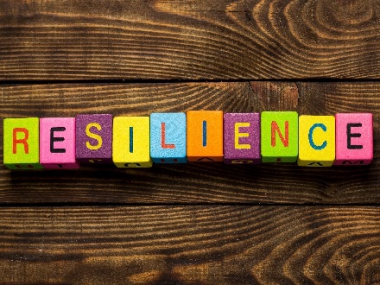Ready for the future? Urban resilience in practice
Edited on
12 January 2018This article by Eddy Adams provides an interesting insight into the changing nature of the jobs and skills agenda across Europe – an agenda being shaped by increased urbanisation, assumptions on the future direction of growth and the emerging economic model, and the influence of the digital economy on this, and changing demographics.

The economic crisis of the ‘Noughties’ clearly illustrated the economic vulnerability of many communities and regions as the key traditional sectors upon which they were dependent – construction, manufacturing – collapsed. As the economy slowly recovers, it is increasing clear that citizens must prepare for a ‘new look’ future in terms of jobs and the associated skills required. Yet, across Europe, significant proportions of working age people” have such low skills that their future prospects are curtailed”.
In Ireland, the Irish Government published the first Action Plan for Education in September 2016; the main aims of which are to:
- Improve the learning experience and the success of learners;
- Improve the progress of learners at risk of educational disadvantage or learners with special educational needs;
- Help those delivering education services to continually improve;
- Build stronger bridges between education and the wider community;
- Improve national planning and support services.
The Plan, containing hundreds of actions, is recognised, appropriately, as the start of a process. It places a core emphasis on pertinent issues in meeting the needs of employers such as (a) Subject choice – including rolling out coding to primary schools from 2018, teaching of computer science as a Leaving Certificate subject, and processes to introduce teaching of new languages such as Mandarin at second level and to enhance teaching of languages at third level; and (b) Skills – including a total of 100 apprenticeship schemes and 50 traineeship schemes delivering 50,000 registrations between now and 2020; a 25% increase in increase access to work experience at higher level; a 25% increase in flexible learning; and the development of an entrepreneurship education plan. Indeed, as Ireland emerges from the crisis, a renewed emphasis is being placed on apprenticeships and traineeships – as highlighted by the formation of the Apprenticeship Council in 2014. A core role of this Council is to expand apprenticeships into new sectors of the economy and map out sectors where new apprenticeships can make a real difference to both employers and employees.
Unusually, the Action Plan for Education is not a static document. An annual action plan will be produced each year, providing an opportunity to take stock and to include more ambitious and more specific actions to achieve our goals. And rather uniquely, ideas are sought from members of the public, employers, teachers and trainers who have read the Action Plan on how the Plan can be strengthened. Questions posed by the Department of Education and Skills include:
- Are there new actions that we should include for 2017?
- Are there actions that we should prioritise in 2017?
- How, based on your knowledge and experience of the area, should the achievement of specific actions be measured?
For 2017, submissions are sought by Monday, 28th November 2016. As Ireland continues to pick itself up following the economic crisis, we encourage you to make full use of this opportunity to make your voice heard.
Submitted by Caroline Creamer on
